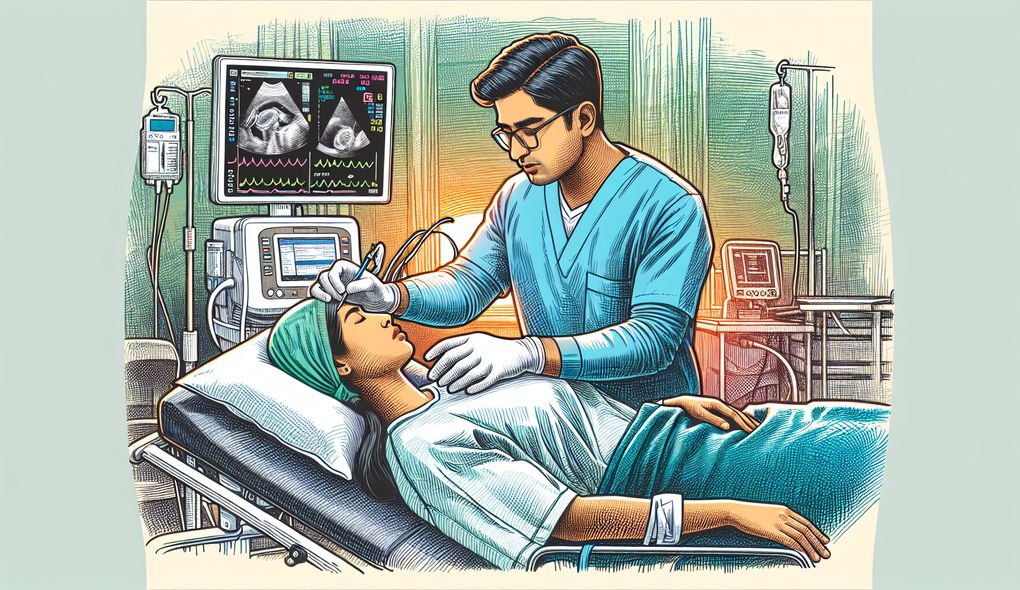Can you explain the importance of Basic Life Support (BLS) and Advanced Cardiovascular Life Support (ACLS) certification in your role?
INTERMEDIATE LEVEL

Sample answer to the question:
Basic Life Support (BLS) and Advanced Cardiovascular Life Support (ACLS) certification are extremely important in my role as a Perianesthesia Nurse. BLS certification equips me with the necessary skills to provide immediate care in life-threatening situations, such as cardiopulmonary arrest or choking. ACLS certification, on the other hand, takes my knowledge and skills to the next level, allowing me to provide advanced cardiac care and interventions in critical situations. These certifications ensure that I am trained to respond quickly and effectively in emergencies, which is crucial in a high-stress environment like perianesthesia. They also demonstrate my commitment to delivering the highest standard of care to my patients.
Here is a more solid answer:
As a Perianesthesia Nurse, BLS and ACLS certification are essential for several reasons. First, they demonstrate my critical thinking and problem-solving abilities, as I must be able to accurately assess and respond to rapidly changing patient conditions during anesthesia. Secondly, these certifications enhance my communication and interpersonal skills by allowing me to effectively communicate with other healthcare professionals in emergency situations. Additionally, BLS and ACLS training emphasize the importance of working collaboratively in a multidisciplinary team, as these certifications often require teamwork to successfully perform life-saving interventions. In terms of cultural competence and sensitivity, BLS and ACLS training emphasize the importance of treating all patients with respect and dignity, regardless of their background or beliefs. Moreover, these certifications enhance my proficiency in using electronic medical record (EMR) systems, as they emphasize the importance of accurate and timely documentation. Lastly, BLS and ACLS training prepare me to handle high-stress situations with composure and prioritize tasks effectively, which is crucial in the fast-paced environment of perianesthesia care.
Why is this a more solid answer?
The solid answer expands upon the basic answer by providing specific examples of how BLS and ACLS certification directly relate to the evaluation areas mentioned in the job description. It demonstrates how these certifications enhance critical thinking, communication, teamwork, cultural competence, proficiency in EMR systems, and the ability to handle high-stress situations. However, the answer could still benefit from more specific details and examples to further support the points made.
An example of a exceptional answer:
BLS and ACLS certification play a vital role in my work as a Perianesthesia Nurse. These certifications not only equip me with life-saving skills but also enhance my ability to make sound clinical decisions. In terms of critical thinking and problem-solving abilities, BLS and ACLS training have trained me to quickly assess patients' conditions, interpret vital signs, and initiate appropriate interventions. Furthermore, these certifications have sharpened my communication and interpersonal skills by providing me with a common language and standardized protocols to effectively collaborate with other healthcare professionals during emergencies. Working collaboratively in a multidisciplinary team is crucial in the perianesthesia setting, and BLS and ACLS training have prepared me to seamlessly integrate with the team and contribute to the best outcomes for patients. In addition, BLS and ACLS certification emphasize the importance of cultural competence and sensitivity in providing patient-centered care. Through training scenarios and case studies, I have gained a deeper understanding of and respect for different cultural beliefs and practices, allowing me to deliver care that is sensitive to the unique needs and backgrounds of each patient. Moreover, these certifications have enhanced my proficiency in using electronic medical record (EMR) systems through the emphasis on accurate and timely documentation of interventions and patient responses. Lastly, BLS and ACLS training have equipped me with the skills and mindset to handle high-stress situations with composure, allowing me to prioritize tasks effectively and provide a calm and reassuring presence to patients and their families. Overall, BLS and ACLS certification are indispensable in my role, as they provide me with the knowledge, skills, and confidence to deliver exceptional perianesthesia care.
Why is this an exceptional answer?
The exceptional answer builds upon the solid answer by providing more specific details and examples. It highlights how BLS and ACLS certification enhance critical thinking, communication, teamwork, cultural competence, proficiency in EMR systems, and the ability to handle high-stress situations. The answer demonstrates a deep understanding of the role of these certifications in the perianesthesia setting and how they directly contribute to delivering exceptional care. It also showcases the candidate's passion and dedication to their role as a Perianesthesia Nurse. However, the answer could be further improved by providing even more specific examples and anecdotes to illustrate the impact of BLS and ACLS certification in various situations.
How to prepare for this question:
- Review the latest guidelines and algorithms for Basic Life Support (BLS) and Advanced Cardiovascular Life Support (ACLS) to ensure you are up to date with the most current practices.
- Take part in mock code scenarios and simulations to practice your skills in a simulated high-stress environment.
- Seek opportunities to collaborate with other healthcare professionals in emergency situations to develop and refine your teamwork and communication skills.
- Participate in cultural competency training programs to enhance your cultural competence and sensitivity in providing care to diverse patient populations.
- Familiarize yourself with the electronic medical record (EMR) system used in your workplace and seek additional training or resources if needed.
- Develop strategies to improve your time management and organizational skills, as these are crucial in handling a high volume of patients in the perianesthesia setting.
What are interviewers evaluating with this question?
- Critical thinking and problem-solving abilities
- Communication and interpersonal skills
- Ability to work collaboratively in a multidisciplinary team
- Cultural competence and sensitivity
- Proficient in electronic medical record (EMR) systems
- Capacity to handle high-stress situations with composure
- Time management and organizational skills

